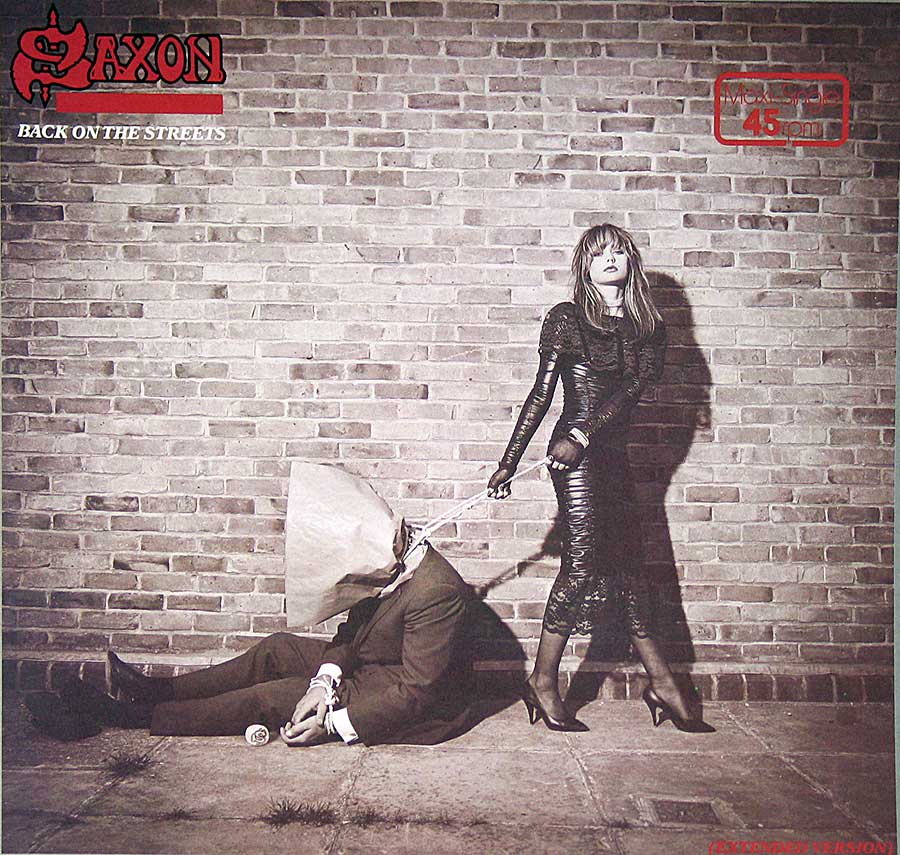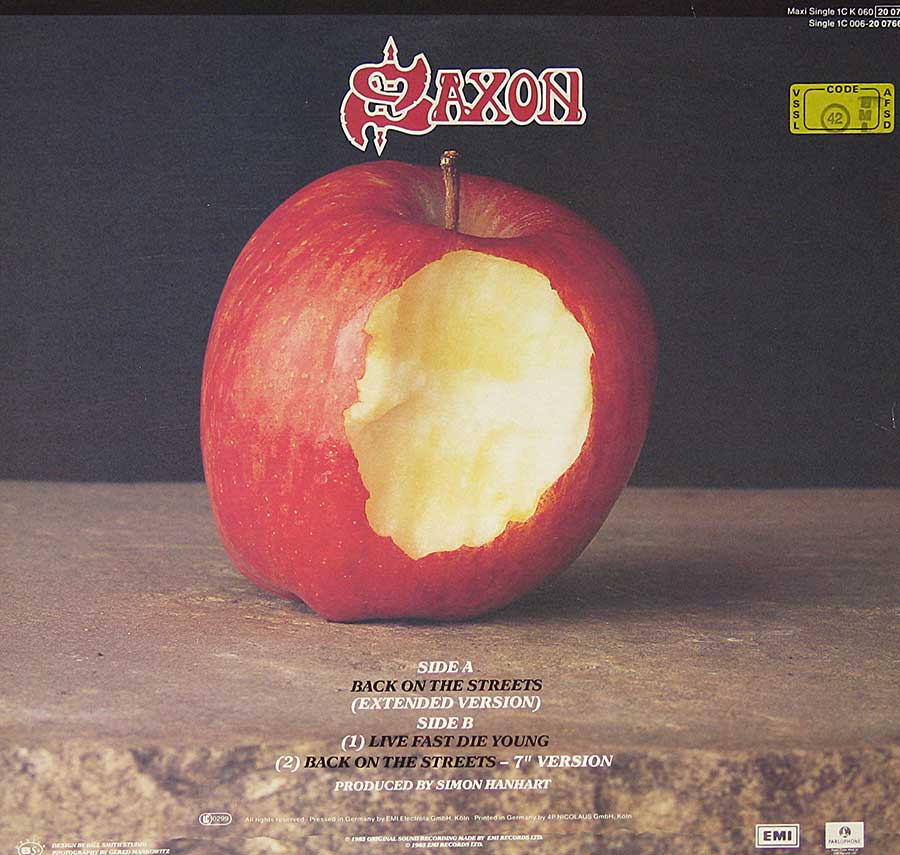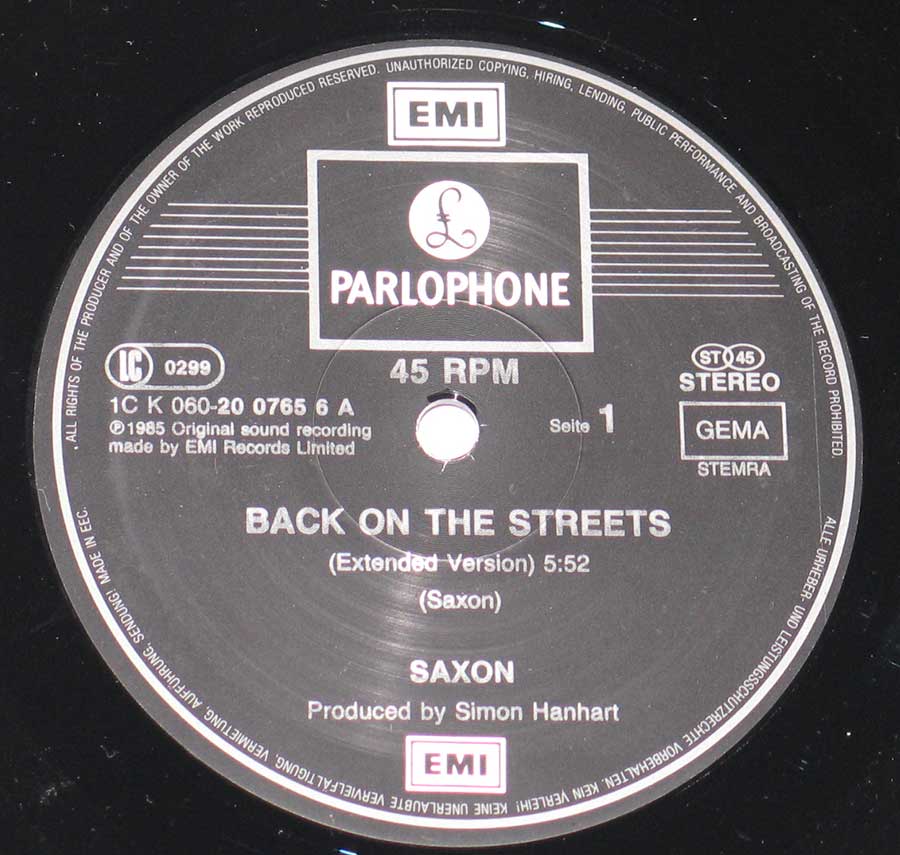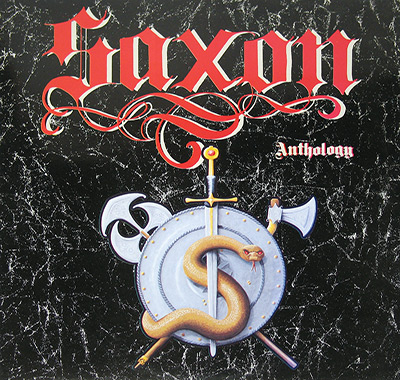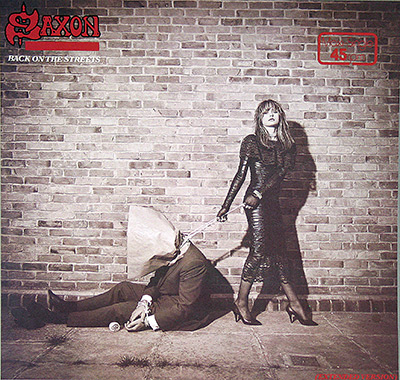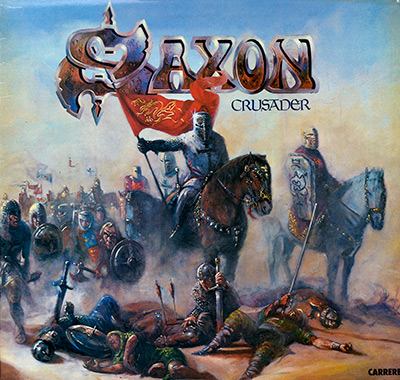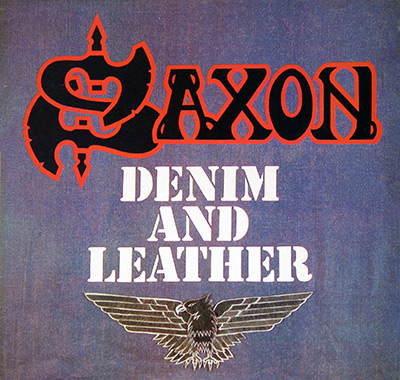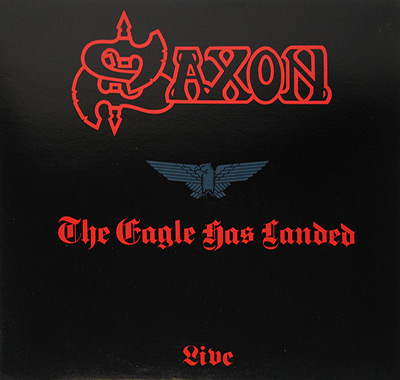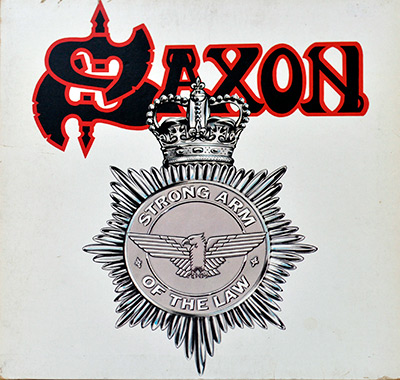Battery Studios (London), Battery Studios — a Willesden Green workhorse that learned new tricks fast. Built as Morgan Studio 3 & 4 in the early ’70s, it got re-badged in 1980 when Zomba bought it and started feeding it Jive/Zomba projects, then the rest of London followed. Inside, the vibe was part office, part laboratory: in-house guns like Mutt Lange and Martin Birch drifting through, bookings ringing off the hook. Remember the tech flex: Fairlight CMI, SSL desks, and that 32-track Mitsubishi when most rooms still smelled like spooled oxide. Listen to the timeline: Iron Maiden (Nov 1980–82), Def Leppard (1981–82), The Cars (1984), Billy Ocean (1984–88), The Stone Roses (Jun 1988–Feb 1989), and even Bryan Adams with Lange (1991).
Saxon - Back on the Streets (extended version) / Live Fast Die Young 12" Vinyl Maxi
"Back on the Streets" is a studio album by the British heavy metal band SAXON, released in 1978. It was the band's debut album and features the singles "Stallions of the Highway" and "Big Teaser". The album was produced by Pete Hinton and recorded at Rockfield Studios in Wales. It was well received by critics and helped establish the band as a significant force in the New Wave of British Heavy Metal movement..
